When I found this old 1954 Civics test, I thought it would be interesting to see if people today can still pass it. How about eighth graders in 2015? Is it still a requirement for eighth graders to know the meaning of every constitutional amendment, or to recite the Preamble by memory?
Personally, I was able to answer most of the constitutional questions and questions about the structure of our government, but I'm embarrassed to admit I couldn't list everyone in the president's current cabinet…and, obviously, the cabinet positions have changed considerably since 1954.
This is a copy of eighth grader Kenny Hignite's test. Back in 1954, he did very well — scoring a 98.5. (He answered "Who regulates inter-state [sic] commerce?" incorrectly. Kenny said state government, though the answer is Congress. He also said the president can make treaties if the Senate approves the treaty, but he left out "by 2/3 approval," so he only got half a point.)
If you want to take the test yourself, we've included the questions at the bottom of the post without the answers. You can also just skim through Kenny's answers if you prefer.
Does this seem too easy, too hard, or appropriate for an eighth grader? Let us know your opinion in the comments.
Let us know how you do, then challenge a friend to see if they'd still be able to pass the test by SHARING it with them.
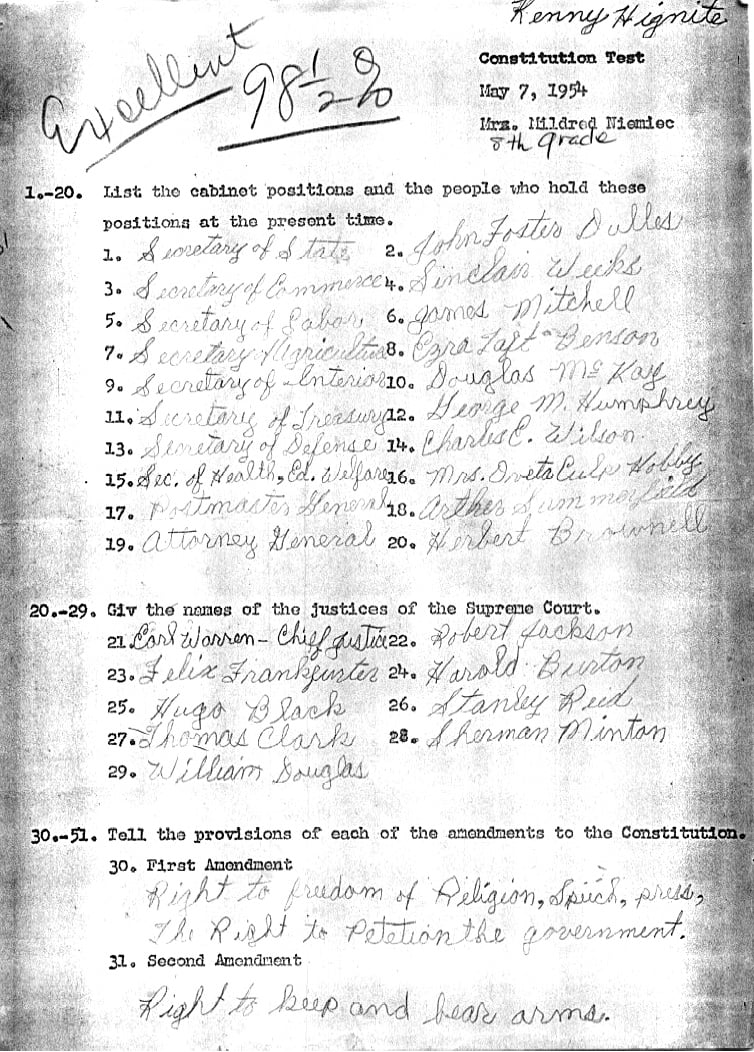
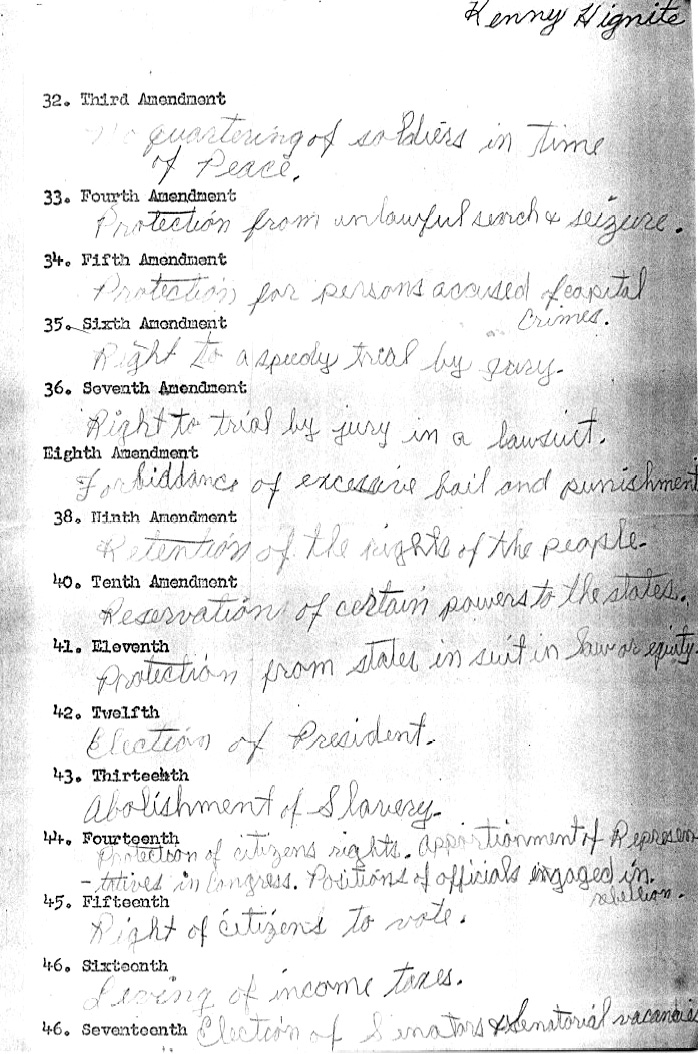
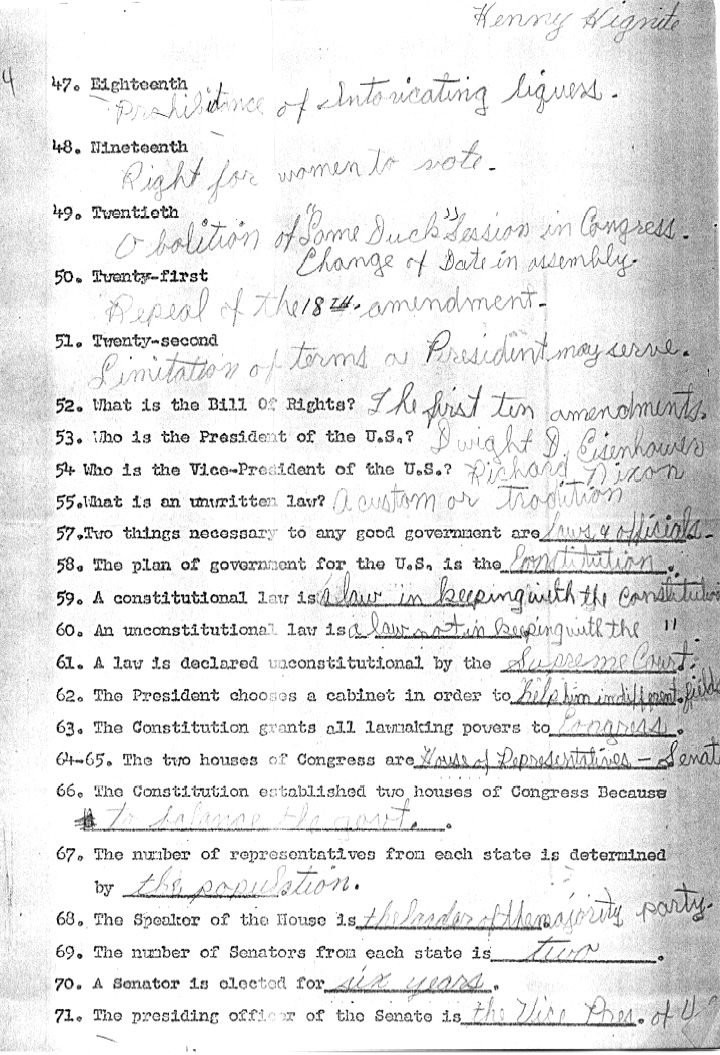
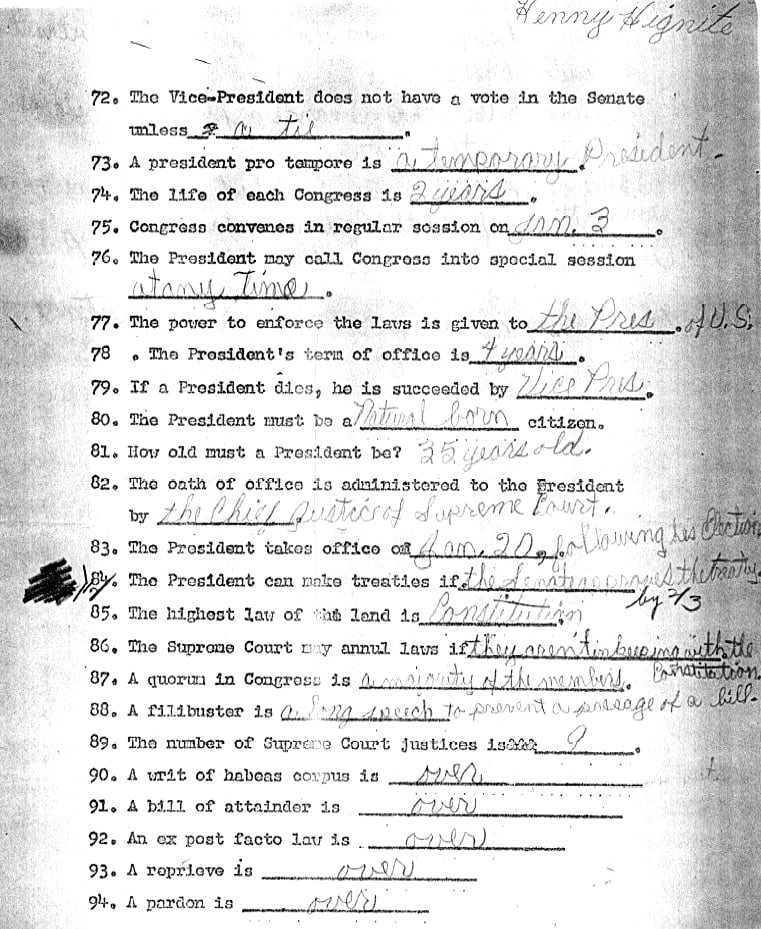
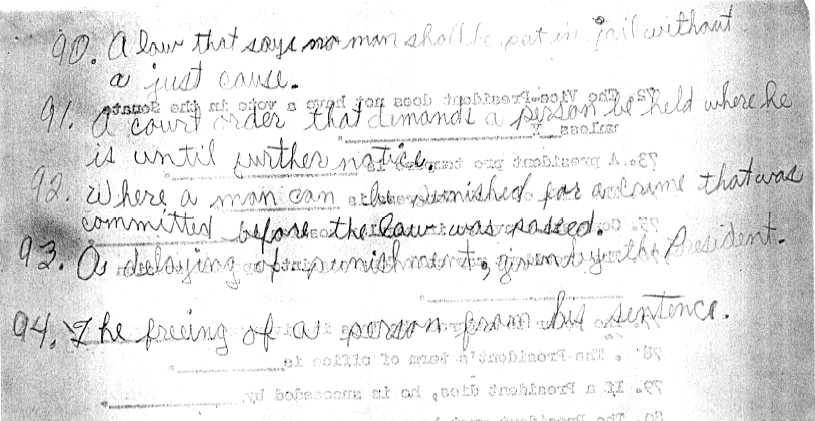
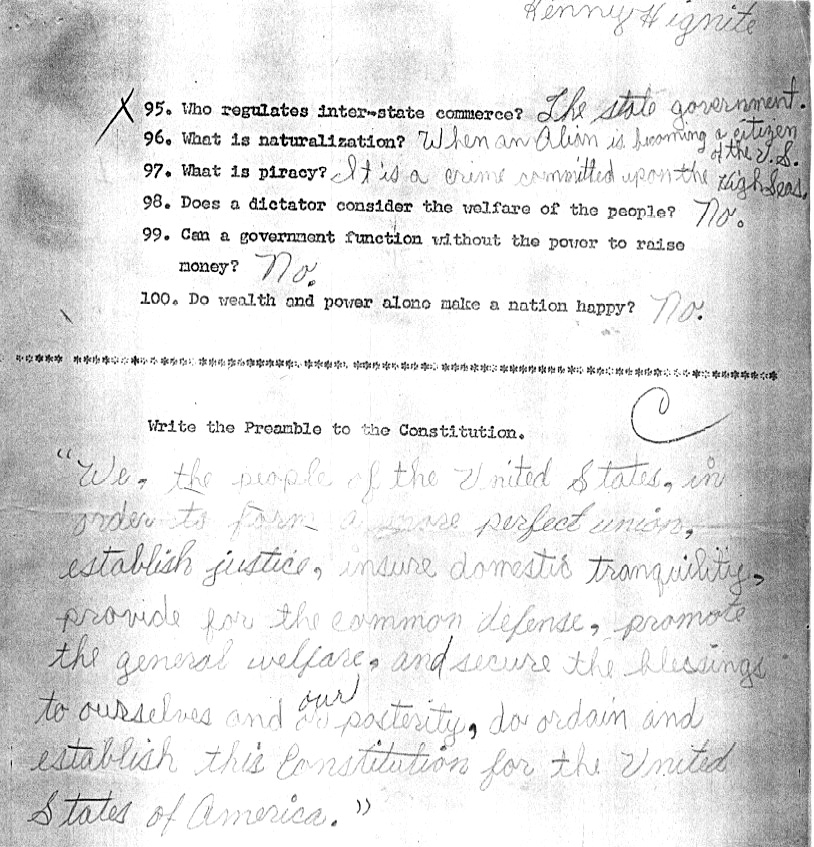
1-20: List the cabinet positions and the people who hold these positions at the present time. [There are more cabinet positions now than in 1954.]
20-29: Give the names of the justices of the Supreme Court.
30-51: Tell the provisions of each of the amendments to the Constitution. [There are now 27 amendments.]
-
What is the Bill Of Rights?
-
Who is the President of the U.S.?
-
Who is the Vice-President of the U.S.?
-
What is an unwritten law?
-
(Missing)
-
Two things necessary to any good government are ___.
-
The plan of government for the U.S. is the ___.
-
A constitutional law is ___.
-
An unconstitutional law is ___.
-
A law is declared unconstitutional by the ___.
-
The President chooses a cabinet in order to ___.
-
The Constitution grants all lawmaking powers to ___.
64-65. The two houses of Congress are ___ and ____.
-
The Constitution established two houses of Congress because ___.
-
The number of representatives from each state is determined by ___.
-
The Speaker of the House is ___.
-
The number of Senators from each state is ___.
-
A Senator is elected for ___.
-
The presiding officer of the Senate is ___.
-
The Vice-President does not have a vote in the Senate unless ___.
-
A president pro tempore is ___.
-
The life of each Congress is ___.
-
Congress convenes in regular session on ___.
-
The president may call Congress into session ___.
-
The power to enforce the laws is given to ___.
-
The President's term of office is ___.
-
If a President dies, he is succeeded by ___.
-
The President must be a ___ citizen.
-
How old must a President be?
-
The oath of office is administered to the President by ___.
-
The President takes office on ___.
-
The President can make treaties if ___.
-
The highest law of the land is ___.
-
The Supreme Court may annul laws if___.
-
A quorum for Congress is ___.
-
A filibuster is ___.
-
The number of Supreme Court justices is ___.
-
A write of habeus corpus is ___.
-
A bill of attainder is ___.
-
An ex post fact law is ___.
-
A reprieve is ___.
-
A pardon is ___.
-
Who regulates inter-state commerce?
-
What is naturalization?
-
What is piracy?
-
Does a dictator consider the welfare of the people?
-
Can a government function without the power to raise money?
-
Do wealth and power alone make a nation happy?
Write the preamble to the Constitution.
[sic]
Please SHARE your results!




